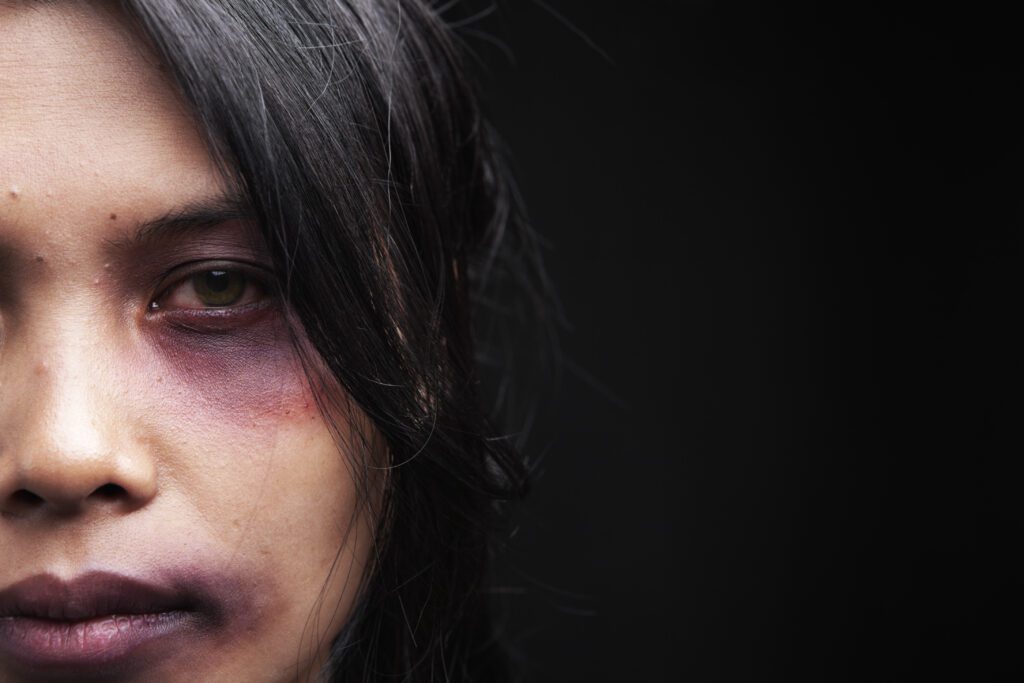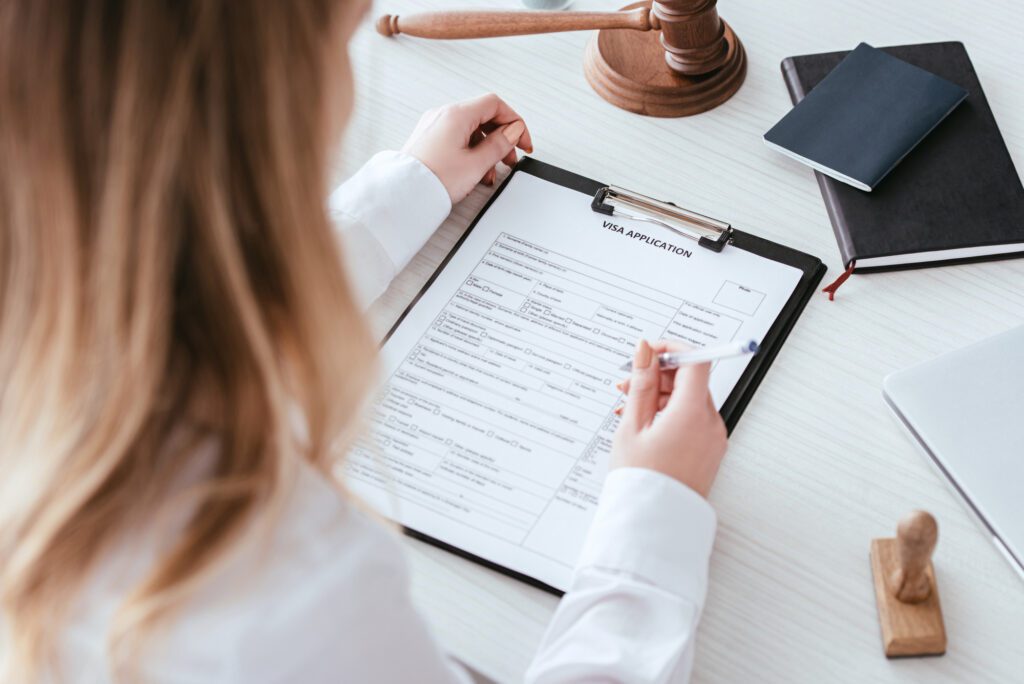U visas allow victims of certain crimes to temporarily lawfully live and work in the United States. The federal government created the U visa classification for the victims of mental or physical abuse to help law enforcement investigate crimes and for humanitarian purposes.

U nonimmigrant status was created in 2000 with the passage of the Victims of Trafficking and Violence Protection Act (including the Battered Immigrant Women’s Protection Act). As Virginia Beach U visa attorneys, we provide invaluable help and advice about whether you qualify for a U visa and represent your interests during the bureaucratic and competitive application process. The government has set specific eligibility requirements to qualify for U Visas. It’s important to meet these requirements in your application.
What Are the Eligibility Requirements for a U Visa?
There are six requirements you must meet to qualify for a U-visa.
• The applicant must be a victim of a qualifying crime.
• The applicant suffered physical or mental abuse due to the qualifying crime;
• The crime occurred in the United States or violated U.S. law;
• The victim is able to provide information pertinent to the alleged criminal activity;
• The victim of the crime must provide information during the investigation and prosecution of the alleged crime;
• The applicant must be admissible to the United States under current immigration laws and regulations. If the applicant is not admissible he or she may apply for a waiver on Form I-192, Application for Advance Permission to Enter as a Nonimmigrant.
What Are Qualifying Criminal Activities to Apply for a U Visa?
U.S. Citizenship and Immigration Services (USCIS) lists almost 30 crimes that qualify for a U visa application. The victims may also allege any similar activity where the elements of the crime are similar. They are:
• Abduction
• Abusive Sexual Contact
• Blackmail
• Domestic Violence

• Extortion
• False Imprisonment
• Female Genital Mutilation
• Felonious Assault
• Fraud in Foreign Labor Contracting
• Being Held Hostage
• Incest
• Involuntary Servitude
• Kidnapping
• Manslaughter
• Murder
• Obstruction of Justice
• Peonage
• Perjury
• Prostitution
• Rape
• Sexual Assault
• Sexual Exploitation
• Slave Trade
• Stalking
• Torture
• Human trafficking
• Witness Tampering
• Unlawful Criminal Restraint
The qualifying crimes include any attempt, conspiracy, or solicitation to commit any of the above and other related crimes.
What Does Being Helpful to the Investigation Mean?
Victims of alleged crimes must work with law enforcement and be helpful to qualify for a U visa. The Department of Homeland Security defines “helpful” as meaning the victim has been, is being, or is likely to assist law enforcement, judges, prosecutors, or other government officials in the detection, prosecution, investigation, conviction, or sentencing of the perpetrator of the qualifying criminal activity. The responsibility to be helpful is ongoing. The duty to remain helpful to law enforcement remains after a U visa is granted. Victims of crime who unreasonably refuse to provide assistance after granting of the visa will not be eligible to obtain lawful permanent residency in the United States.
Law enforcement agencies, judges, or prosecutors can certify a U visa based on present or past behavior, or how likely a victim is to be helpful in the future. The issuing of the visa does not have to relate to a current investigation. It can be linked to the filing of charges, a prosecution, or a conviction. A U visa can even be issued where a victim reported criminal activity but no arrest or prosecution was forthcoming.
How Can You Apply for a U Visa?
Applicants for U visas must submit Form I-918, Petition for U Nonimmigrant Status (“Form I-918”). They must submit any evidence and petitions for derivative family members to USCIS. The applicant must show on Form I-918 that he or she suffered substantial physical or mental abuse as a result of having been a victim of a qualifying criminal activity and provide supporting evidence.

The applicant must also provide credible and reliable information about the criminal activity that is likely to be helpful to law enforcement in the detection, investigation or prosecution of the crime and is admissible to the United States. A petitioner who is not admissible may apply for a waiver via Form I-192, Application for Advance Permission to Enter as a Nonimmigrant.
The principal petitioner must also file a Form I-918, Supplement B, U Nonimmigrant Status Certification, often referred to as a “law enforcement certification.” An authorized official of a certifying agency must sign the I-918. The official confirms the details of the qualifying criminal activity and certifies that the principal petitioner was helpful, is currently being helpful, or is likely to be helpful in the detection, investigation, or prosecution of the crime.
How Many U Visas Are Issued Every Year?
USCIS may only approve 10,000 principal U visa petitions every fiscal year. Unfortunately, applications for U visas dramatically exceed the quota and applications are increasing year after year. The USCIS report “U Visa Filing Trends” published in 2020 stated pending principal petitions reached 152,000 by the end of 2019 with nearly 104,000 pending petitions for family members.
The report stated the wait time for a principal petitioner to receive a final decision is currently 5-10 years, depending on the applicant’s placement in the pending queue. On the basis of these trends, the pending wait and associated processing times will continue to grow significantly, USCIS states. Given the long waiting list, it’s important to get your application right the first time. An experienced immigration lawyer can ensure you avoid making mistakes.
What Are the Approval Rates for U Visas?
Approval rates for U visas are higher than for many other types of visas. The approval rate for a principal U visa was 84.2% in 2014. The denial rate was just 14.9%. The most common reasons given for denial by USCIS include insufficient or missing evidence in a petition, inadmissibility, the applicant abandoning the petition, the petitioner failing to demonstrate a qualifying criminal activity, or the failure to demonstrate substantial harm.
How Long Does a U Visa Last?
Victims of serious crimes in the categories outlined by USCIS can stay in the United States for up to four years while they assist law enforcement agents with the investigation of the crime, even if they are undocumented and living illegally in the country. Once approved by USCIS, the U Visa will allow you and your immediate family to live and work in the United States. You may apply for permanent residency and green card in three years.
Are U Visa Extensions Available?
In certain circumstances, an extension may be available in limited circumstances. You may be able to extend your U Visa if:
• A longer period is needed on a request by law enforcement
• It is needed based on exceptional circumstances;
• Due to delays in consular processing;
• It is automatically extended on the filing and pendency of an application for a Green Card.
Filing U Visas for Qualifying Family Members
If you file for a U visa as a principal, certain family members may be eligible for derivative U visas. Their eligibility depends on their relationship to you. The principal petitioner must have his or her petition for a U visa approved before family members become eligible for derivative U visas.
A principal who is under 21 years of age can petition on behalf of a spouse, children, parents, and unmarried siblings under the age of 18.
A principal who is over 21 years of age can petition on behalf of their spouse and children. The approval rate for derivative petitions is slightly lower than that for principals – 82.5% in 2014 with a denial rate of 15.6%
What is the Difference Between a U Visa and a T Visa?
T visas are similar to U visas but there are important differences. T visas allow certain victims of human trafficking to remain in the United States for up to four years when they have helped law enforcement officers in an investigation or prosecution of human traffickers.
T visas are only available for certain qualifying family members of human trafficking victims. USCIS states T visa holders can claim work in the United States and claim specific federal and state benefits and services.
Unlike applicants for U visas, people who apply for T visas must be present in the United States due to human trafficking. U visa applicants may have visited the United States on vacation or for another purpose and fallen victim to human trafficking or another qualifying crime during that period. Typically, to be eligible for a T visa, you must have traveled to the U.S. against your will or due to an act of deception. Victims are usually abducted, kidnapped, recruited, or deceived by human traffickers and would not be in this country were it were not for the actions of a trafficker. The Office of Refugee Resettlement highlights specific benefit programs available to victims of trafficking.
Contact Virginia Beach U Visa Attorneys
The attorneys at Gardner & Mendoza have helped thousands of people in their immigration journey to Virginia Beach, Tidewater and beyond. We know how tough it can be to secure a visa to the United States, particularly with the added heartache and stress that comes with being the victim of a crime. Many people who apply for U visas have suffered substantial physical and mental abuse. We can ensure the visa application process is as stress-free as possible and work seamlessly with all relevant agencies. Please call us for a consultation today at 757-464-9224 and read about our success stories on our website.